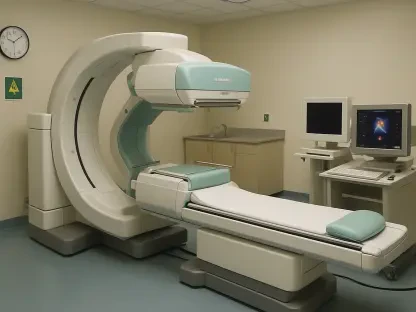In the era of wearable technology, smartwatches have become ubiquitous tools for tracking personal health data. These devices promise insight into daily activity levels, heart rate, sleep patterns, and even calories burned, situating themselves as indispensable for those keen on maintaining or improving their fitness. However, despite the widespread adoption of smartwatches, one pressing question remains: Are these fitness trackers truly accurate? To delve into this, it is essential to examine their capabilities and limitations, and how variances in brand and usage affect the precision of the collected data.
Evaluating Heart Rate Accuracy
Heart rate tracking stands as one of the pivotal features of modern smartwatches, drawing considerable attention for its potential to monitor cardiovascular health. When assessing the accuracy of heart rate monitors, factors such as brand, device placement, and activity level come into play. Devices from prominent brands like Apple, Samsung, Fitbit, Noise, and boAt generally provide reliable readings during periods of rest or light activity. However, during vigorous exercises, discrepancies can emerge due to rapid wrist movements and changes in blood flow dynamics.
Smartwatches typically utilize photoplethysmography (PPG) sensors, which measure variations in blood volume through the skin. While effective in many scenarios, this method can falter under intense physical exertion, leading to skewed results. To enhance precision, users are encouraged to ensure a snug fit and to recalibrate the device regularly. Despite these efforts, it is advisable to recognize that smartwatches offer a general overview rather than pinpoint accuracy, making them suitable for casual monitoring rather than medical-grade assessments.
Sleep and Calorie Tracking Insights
Sleep tracking represents another significant functionality of smartwatches, aiding users to understand their sleep quality and patterns. Brands differ in their approach to sleep monitoring, using advanced algorithms to identify stages such as REM, light, and deep sleep. Although many devices offer reasonable insights, occasional misidentifications of sleep phases do occur, skewing the perceived quality of rest. These errors often result from external factors such as ambient light, sudden movements, or irregular sleep patterns, which can complicate algorithmic precision. Overall, while informative for general trends, smartwatch sleep data should be complemented with self-assessment and, for more serious concerns, professional evaluation.
Calorie tracking presents a greater challenge due to the complexity of accurately measuring energy expenditure. Smartwatches estimate burned calories based on a combination of heart rate data, user profile information (age, weight, gender), and type of activity. Although these estimations provide a useful ballpark figure, they are influenced by variables unique to each individual that may not be perfectly accounted for. Consequently, calorie counts from smartwatches should be viewed as approximate, particularly for varied activities beyond simple walking or running. While practical for motivating users and guiding lifestyle choices, the precision is insufficient for detailed dietary or fitness planning.
Ultimately, the summary portrays that while smartwatches are valuable for providing a general health overview, they should be utilized primarily as guides rather than definitive measuring tools.
Conclusion and Future Considerations
In the modern era, wearable technology has become integral to daily life, with smartwatches emerging as popular tools for tracking personal health data. These devices offer promising insights into various health metrics, such as daily activity levels, heart rate, sleep patterns, and calories burned. Smartwatches position themselves as essential for anyone looking to maintain or elevate their fitness. Despite their widespread use, a persistent question lingers: How accurate are these fitness trackers? To thoroughly explore this, it is necessary to assess the capabilities and limitations of these devices. Factors like brand differences and user habits significantly influence the accuracy of the collected data. Research shows that while some smartwatches provide highly accurate readings, others may not be as reliable. User behavior, such as how consistently and correctly the devices are worn, also plays a critical role in data precision. Ultimately, understanding the accuracy and intricacies of smartwatches can help users make better-informed decisions regarding their personal health management.








